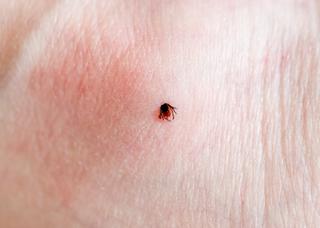What are Borrelia antibodies IgG?
Borrelia antibodies IgG are immunoglobulins of the IgG type that the body produces in response to an infection with Borrelia bacteria, which cause the disease Lyme disease. These antibodies are part of the body's immune system and play an important role in fighting infections.
Production of Borrelia antibodies IgG
When the body is exposed to Borrelia bacteria, the immune system responds by producing specific antibodies, including IgG antibodies. The production of Borrelia antibodies IgG is part of the adaptive immune system, where the body creates specific antibodies that can recognize and fight Borrelia bacteria.
How is Borrelia usually infected?
Borrelia bacteria are usually spread through the bite of infected ticks, which are known to carry Borrelia bacteria. When a tick bites a human to suck blood and can therefore transfer Borrelia bacteria from its saliva into the human's bloodstream. The risk of contracting Lyme disease depends on various factors, including where in the world you are, how common Lyme-carrying ticks are in that area, and how quickly the tick is removed after it bites.
When Borrelia bacteria have been transferred to a person through a tick bite, they can cause an infection called Lyme disease. It is important to be aware of the symptoms of Lyme disease and seek medical attention if you suspect you have been infected, especially if you have been bitten by a tick or live in areas where Lyme-carrying ticks are common. It usually takes a few weeks after a person has been infected with Borrelia for antibodies, including IgG, to become detectable in the blood through various testing methods.
Testing and analysis of Borrelia antibodies IgG
There are various tests available to detect Borrelia antibodies, including IgG tests. These tests can be performed by taking a blood sample from the patient and analyzing it for the presence of specific antibodies against Borrelia bacteria.
Borrelia antibody IgG testing is particularly useful in diagnosing Lyme infections that have lasted for a long time, because IgG antibodies usually take longer to develop and remain in the blood for a longer period after infection.
Significance of Borrelia antibodies IgG test
Positive results for Borrelia antibodies IgG may indicate that a person has or has had an infection with Borrelia bacteria. It is important to note that a positive test result does not necessarily mean that the person is currently ill, as antibodies may remain in the blood even after the infection has healed.
It is also important to consider that the results of the Borrelia antibody IgG test are not 100% reliable and may need to be interpreted in conjunction with the patient's clinical symptoms and other diagnostic tests to make an accurate assessment of infection status and need for treatment.
p>Summary of Borrelia IgG-AK
Borrelia antibodies IgG is an important part of the body's immune system against Borrelia bacteria and is used to diagnose Lyme infections. Tests for Borrelia antibodies IgG can provide valuable information about a person's exposure to Borrelia bacteria and help guide treatment decisions.






















